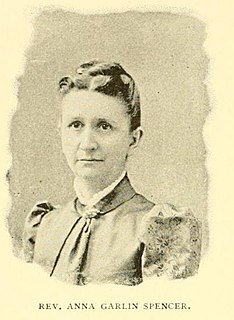A Quote by Gunter Grass
Melancholy has ceased to be an individual phenomenon, an exception. It has become the class privilege of the wage earner, a mass state of mind that finds its cause wherever life is governed by production quotas.
Related Quotes
Both for the production on a mass scale of this communist consciousness, and for the success of the cause itself, the alteration of men on a mass scale is necessary, an alteration which can only take place in a practical movement, a revolution; this revolution is necessary, therefore, not only because the ruling class cannot be overthrown in any other way, but also because the class overthrowing it can only in a revolution succeed in ridding itself of all the muck of ages and become fitted to found society anew.
If a market exists for low-paid work, then we should think about how we can make this type of work more attractive by providing government assistance. Of course, the wage-earner must be able to live off of his wages. We will not allow poverty wages or dumping wages. But the wage earner can receive a combined wage that includes both his actual wages and a government subsidy.
Regardless of the gender of the highest wage earner, the balance of power in the relationship will suffer if the higher earner uses control of the purse strings as a system of reward and punishment. It will also suffer if the lower earner takes a chippy, haughty attitude to spending money they haven't actually generated themselves.
When the mass of families in a State are without property, then those who were once citizens become virtually slaves. The more the State steps in to enforce conditions of security and sufficiency; the more it regulates wages, provides compulsory insurance, doctoring, education, and in general takes over the lives of the wage-earners, for the benefit of the companies and men employing the wage-earners, the more is this condition of semi-slavery accentuated.
What the carburetor, sparkplug and self-starter are to an automobile, initiative, private enterprise and executive ability are to industry as a whole, including the wage earner, wage payer, wage spender and wage saver, i.e., the investor. If the sparkplug and self-starter get out of commission, the car will come to a standstill.
We've wanted to produce more in the 19th century and the 20th century in order to give man the possibility for more dignified human life; but actually what has happened is that production and consumption have become means - have ceased to be means and have become ends, and we are production crazy and consumption crazy.
The Second Wave Society is industrial and based on mass production, mass distribution, mass consumption, mass education, mass media, mass recreation, mass entertainment, and weapons of mass destruction. You combine those things with standardization, centralization, concentration, and synchronization, and you wind up with a style of organization we call bureaucracy.
The old freedom sufficiently survives in the mind of the wage earner to give him the illusion that, while accepting insurance and maintenance from the capitalist state, he can still be a full citizen. He thinks he can have his cake and eat it too. He is mistaken. The great capitalists who procured these regulations from the politicians knew what they were at. They were catching their proletariat in a net, and now they hold it fast.
Wherever the State touches the personal life of the infant, the child, the youth, or the aged, helpless, defective in mind, body or moral nature, there the State enters "woman's peculiar sphere," her sphere of motherly succor and training, her sphere of sympathetic and self-sacrificing ministration to individual lives.
The socialism of centralised state control of industry and production, is dead. It misunderstood the nature and development of a modern market economy. It failed to recognise that the state and public sector can become a vested interest capable of oppression as much as the vested interests of wealth and capital. it was based on a false view of class that became too rigid to explain or illuminate the nature of class division today.





































